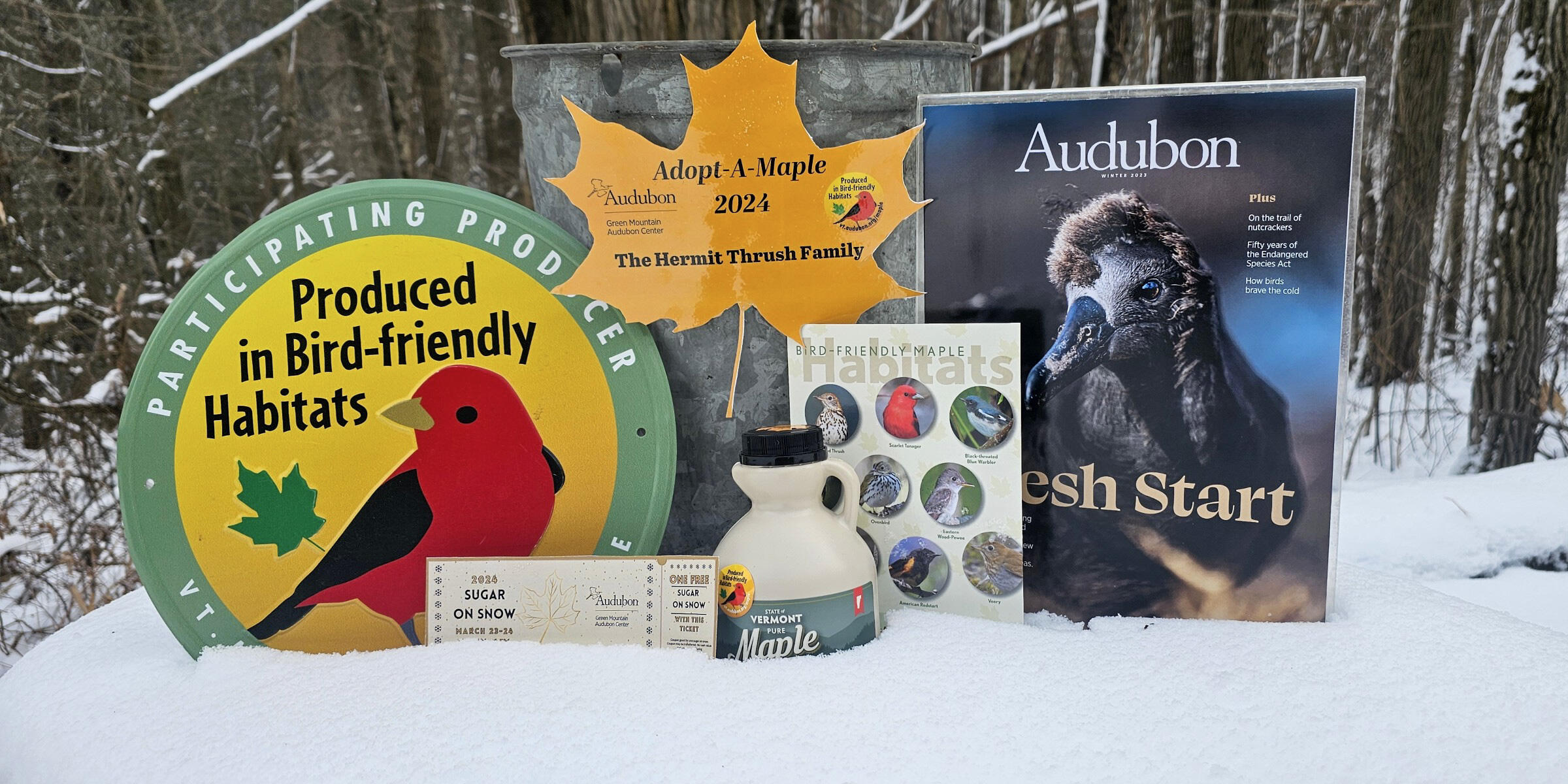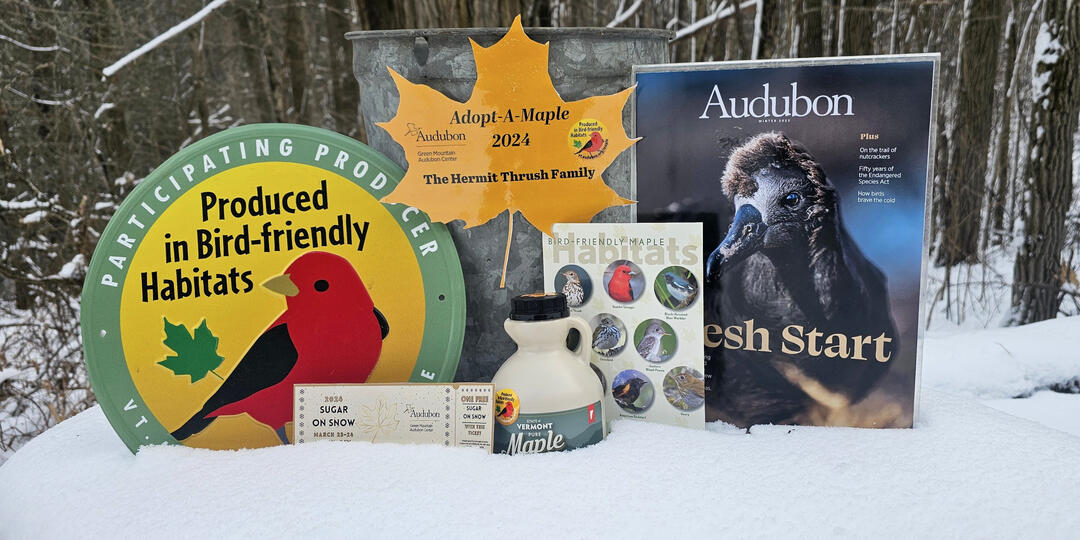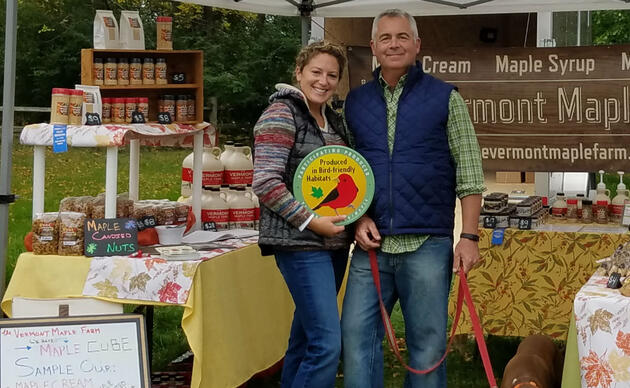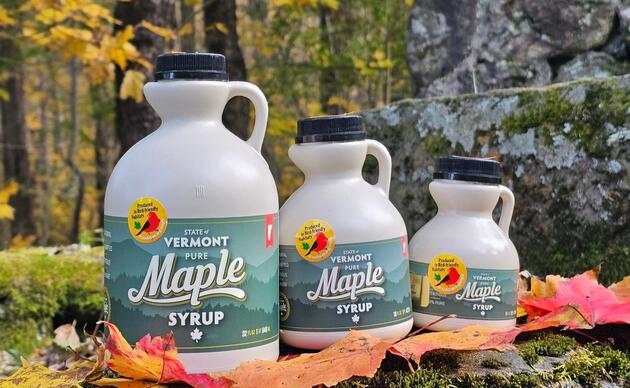Do you want to help protect birds and their habitat? Looking for a unique gift? With our Adopt-a-Maple program you can support Audubon Vermont’s Bird-Friendly Maple Project as well as our hands-on environmental education programs. Maple sugarbushes are inherently good for birds, but forests that are intentionally managed with birds in mind are even better!
To Adopt-a-Maple Online: Click Here!
Or stop by our Visitor Center at 255 Sherman Hollow Road, Huntington, VT. Open M-F 8 AM - 4 PM.
For $100, your name (or the name you designate) will be printed on a maple leaf card and attached to our sugarhouse and a sap bucket for March and April 2025. You will also receive a "sweet" bundle of products from Audubon Vermont:
- Custom maple leaf name card attached to the sugarhouse and a sap bucket in Audubon's Bird-Friendly Sugarbush
- One Sugar on Snow Coupon good at our 2025 Sugar on Snow event on March 22nd and 23rd which will give you a sweet treat of a warm Sugar on snow with a crisp dill pickle!
- One pint of Audubon Vermont's maple syrup
- One-year Family Membership to Audubon Vermont and the National Audubon Society
- One-year subscription to the award-winning Audubon Magazine
- Discounted admission to eligible Audubon Vermont Events including summer and vacation day camps and public programs for adults, families, and preschoolers
The fine print:
One pint of maple syrup is valued at $12 and a Sugar on Snow boat is valued at $8. Adopt-a-Maple sponsors paying by cash or check will receive a tax receipt for an $80 donation. If purchased online, final donation value will not include online processing fees which may vary slightly. Sponsors will receive a tax receipt for a donation around $77.
While maple syrup can look and taste the same, it can come from forests that are managed in dramatically different ways. Park-like maple monocultures may appeal to our tidy aesthetic and increase sap production over the short-term, but they support relatively low numbers of birds and bird species. In contrast, biologically and structurally diverse sugarbushes offer great places for birds to forage, find cover, and raise their young. They are also likely to have better long-term sap production, fewer forest health problems, and be better able to adapt to the stresses of climate change. Learn more...
How you can help, right now
Donate to Audubon
Help secure a future for birds at risk from climate change, habitat loss and other threats. Your support will power our science, education, advocacy and on-the-ground conservation efforts.
Visit Audubon
It's always a good time to visit the Audubon Center. Trails are open to the public year-round. Visit us daily from dawn until dusk! Donations are appreciated.
Events
Adults, preschoolers, foresters, photographers, sugarmakers and families will all find opportunities to connect with nature.







